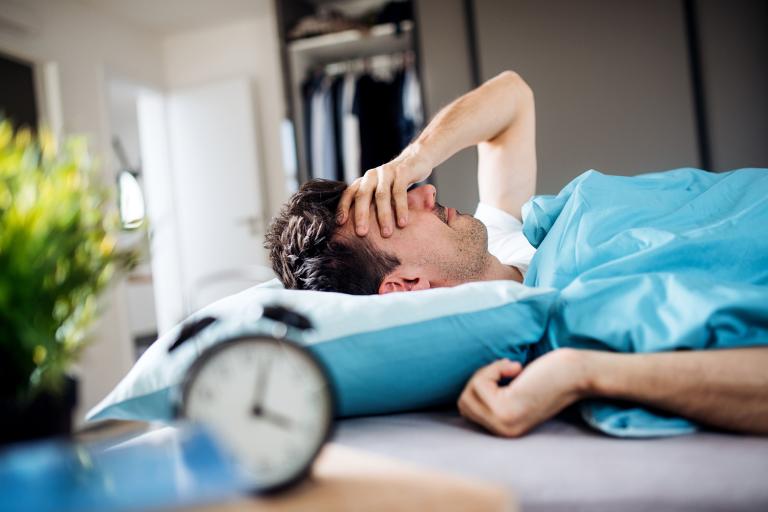Sleeping is one of the most critical stages in a person’s day. It provides energetic recovery and repair from the day’s activities and metabolic detoxification from the chemicals to which we are exposed.
If you are one of the more than 70 million Americans who suffers from various forms of insomnia, take heart. The herbal world is rich with simple botanical remedies to try.
Botanical Solutions for Insomnia
Prior to the development of barbiturates, halcyon, and NyQuil, most of the world’s population relied on a wide array of herbal allies in the quest for a good night’s sleep. Some are used for those occasional restless nights that we all experience, while others address the underlying imbalances that lead to chronic insomnia.
In either case, natural sleep aids should be the first line of defense against sleepless nights, as conventional pharmaceuticals will likely cause both physical and psychological dependence, addiction, and withdrawal symptoms should you try to discontinue their use.
While there are times when professional help is required, every family should have a ready sampling of herbal preparations, ranging from the gentle teas of chamomile and lemon balm to the stronger and more specific remedies of valerian, hops, passionflower, and skullcap.
In addition to herbal remedies, it is important to make the lifestyle changes that foster a good night’s sleep, such as exercising regularly, not eating too close to bedtime, avoiding nervous system stimulation prior to bed, and getting to bed at a regularly scheduled time, ideally by 10:30 in the evening.
-
Calming Teas
The first category of herbal remedies to reach for is gentle but often profoundly relaxing herbal teas. Their warmth and aromatic qualities are a great first step to promote relaxation.
These are to be drunk as hot teas in the evening to wind down and relax the mind or about one hour before bed.
-
Chamomile
Chamomile (Chamaemelum nobile) is one of the most commonly consumed herbal relaxants worldwide. It is rich in essential oils and acts as an antispasmodic by relaxing peripheral nerves and muscles, thus having a relaxing effect on the entire body.
It also has a soothing effect on the digestive system, which, when upset, can be an underlying contributor to restless sleep, especially in children.
Chamomile and lemon balm or relaxing tea blends that contain these as their primary ingredients are useful to have on hand and are safe for children.
An ideal one-two punch against restlessness is the addition of a few drops of essential oil of chamomile in a hot bath as you sip on a comforting cup of chamomile tea.
-
Lemon Balm
Perhaps the most specific use of lemon balm (Melissa officinalis) in helping to promote a peaceful sleep is its ability to calm a restless mind. It has a long and esteemed history as a relaxant and antianxiety herb.
In Germany, this herb is formally approved for the treatment of nervous sleeping disorders.
-
-
Sedatives
A stronger class of relaxing substances than the calmative teas, sedatives are usually used for occasional sleeplessness rather than chronic insomnia.
Sedatives can cause drowsiness the next morning and cause motor impairment so they should be used judiciously.
-
Valerian
With a history of use of more than 2,000 years, valerian (Valerian officinalis) is by far the most common herbal sedative. Numerous clinical trials have reported on its ability to lessen the time it takes to fall asleep.
Valerian is usually taken in capsule, tablet, or liquid extract form. A dose equivalent to approximately 2 to 3 grams of dried root can be taken as needed (look for freshly harvested materials if possible).
Valerian can, however, have a stimulant activity in some.
-
Hops
Another common sedative is hops (Humulus lupulus), the primary flavoring ingredient in beer. Administered as a tea, capsule, tablet, or liquid extract, hops is a powerful relaxant at doses equivalent to approximately 500 mg, as needed.
-
-
Nervines
Nervines are among the most assured of the herbal relaxing agents and are underused as sleep aids. They provide an action similar in strength to sedatives but tend to offer antispasmodic, muscle relaxant, and antianxiety effects rather than direct sedation.
Unlike knockout sedatives, nervines nourish the nervous system. One of the primary advantages of nervines is that they don’t cause drowsiness the next day and can affect lasting changes in the nervous system that can foster a good night’s sleep in the long-term.
These herbs are appropriate for chronic insomnia, and are also good for anyone prone to flustered nervousness.
-
Skullcap
One of the primary botanical nervines used in the West is skullcap (Scutellaria lateriflora), an amazingly effective herb when a quality product is taken.
The most common way to use skullcap is as a liquid extract at a dose equivalent to approximately 1 to 2 g of dried herb, prepared from freshly harvested material.
-
Wild Oats
Another noteworthy nervine are the milky buds or seed heads of wild oats (Avena fatua). It grows abundantly throughout the United States as a weed.
Oat is typically used as a prepared liquid extract at a dose of approximately 1 to 3 ml, as needed.
Make sure the label specifies fresh milky buds, seed heads, or uses similar language.
-
The Big Picture
Botanicals should be used as part of an overall healing program that incorporates diet, lifestyle, stress reduction, and exercise protocols that will foster a healthy night’s sleep without the use of any sleep aid—herbal or conventional.
Other simple sleep promoters include the traditional warm glass of milk (ideally organic) for a naturally rich source of the relaxing amino acid L-tryptophan.
Also consider a hot bath with a few drops of lavender essential oil.
While almost everyone experiences occasional trouble falling or staying asleep and can benefit from herbs, chronic insomnia often has an underlying cause that must be addressed.
For chronic insomniacs, acupuncture and regular massage are valuable tools.

